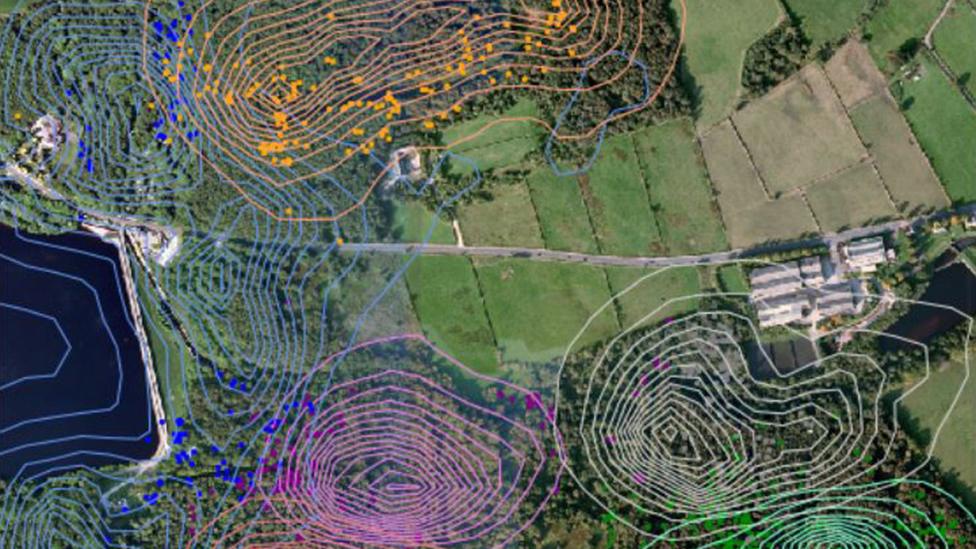Wartime code breaker helps crack Sheffield birds' behaviour
- Published

University of Sheffield researchers looked at the behaviour of flocks of long-tailed tits
Scientists have used mathematical equations developed by a wartime code breaker to understand the behaviour of birds.
University of Sheffield researchers used models developed by Alan Turing to study why flocks of long-tailed tits spread out across the countryside.
They found the birds were more likely to stay close to their relatives but avoided larger flocks.
PhD student Natasha Ellison said the maths was essential to the research.
Researchers tracked the birds around Sheffield's Rivelin Valley, which eventually produced a pattern across the landscape, and they used maths to reveal the behaviours causing these patterns.
The team used equations developed by Mr Turing in the 1950s, who developed them to describe how animals get their spotted and striped patterns.
The mathematician is remembered as a pioneer of computer science who helped crack the German military's Enigma code machines during World War Two.

The distribution of flocks were mapped in Sheffield's Rivelin Valley
"Long-tailed tits are too small to be fitted with GPS trackers like larger animals, so researchers follow these tiny birds on foot, listening for bird calls and identifying birds with binoculars," Ms Ellison said.
"The field work is extremely time consuming and without the help of these mathematical models these behaviours wouldn't have been discovered."
Their findings, published in the Journal of Animal Ecology, show that flocks of long-tailed tits are less likely to avoid places where they have interacted with relatives and more likely to avoid larger flocks, while preferring the centre of woodland.

Follow BBC Yorkshire on Facebook, external, Twitter, external and Instagram, external. Send your story ideas to yorkslincs.news@bbc.co.uk or send video here.
- Published25 March 2021

- Published19 June 2012
